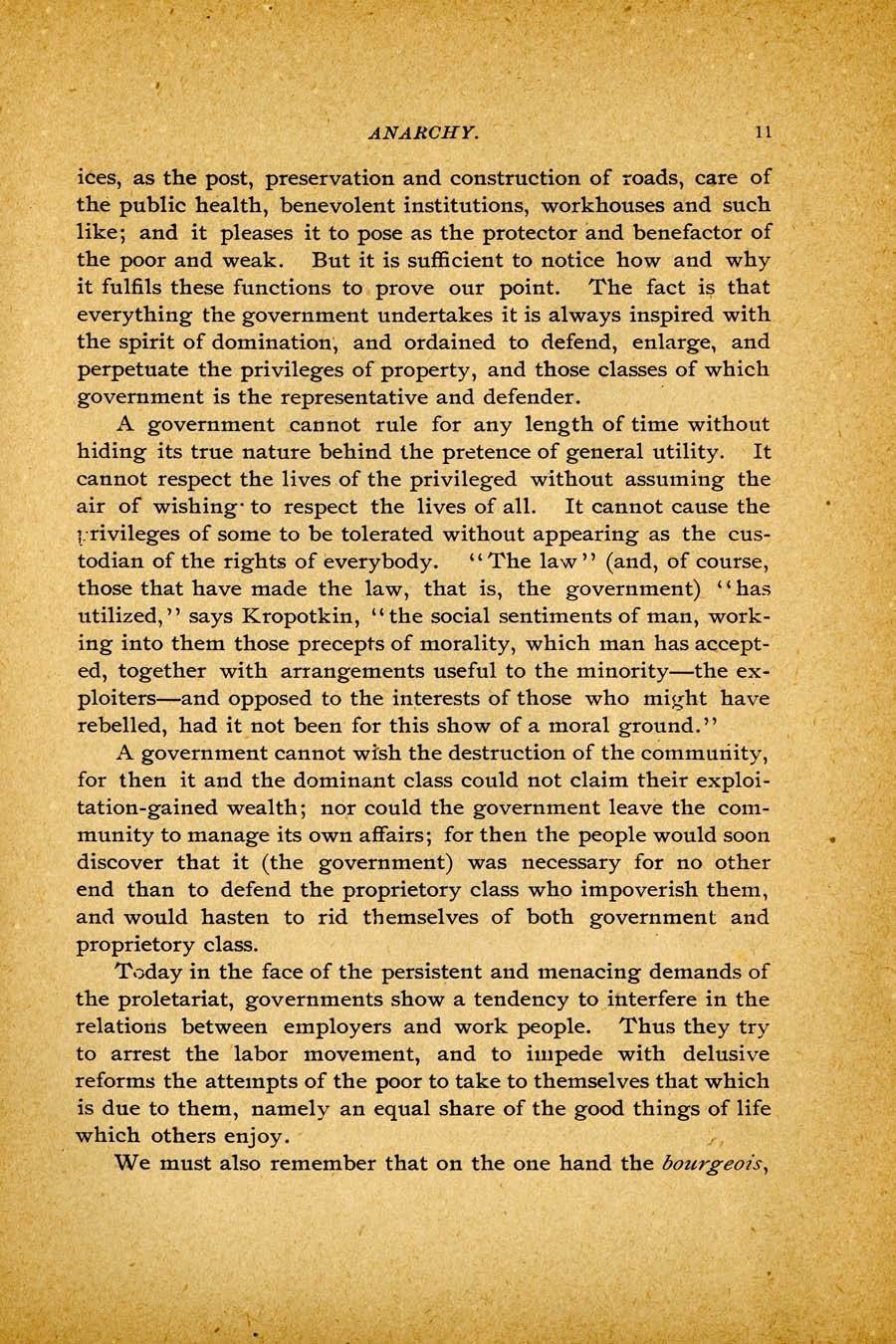ices, as the post, preservation and construction of roads, care of the public health, benevolent institutions, workhouses and such like; and it pleases it to pose as the protector and benefactor of the poor and weak. But it is sufficient to notice how and why it fulfils these functions to prove our point. The fact is that everything the government undertakes it is always inspired with the spirit of domination, and ordained to defend, enlarge, and perpetuate the privileges of property, and those classes of which government is the representative and defender.
A government cannot rule for any length of time without hiding its true nature behind the pretence of general utility. It cannot respect the lives of the privileged without assuming the air of wishing to respect the lives of all. It cannot cause the privileges of some to be tolerated without appearing as the custodian of the rights of everybody. "The law" (and, of course, those that have made the law, that is, the government) "has utilized," says Kropotkin, "the social sentiments of man, working into them those precepts of morality, which man has accepted, together with arrangements useful to the minority—the exploiters—and opposed to the interests of those who might have rebelled, had it not been for this show of a moral ground."
A government cannot wish the destruction of the community, for then it and the dominant class could not claim their exploitation-gained wealth; nor could the government leave the community to manage its own affairs; for then the people would soon discover that it (the government) was necessary for no other end than to defend the proprietory class who impoverish them, and would hasten to rid themselves of both government and proprietory class.
Today in the face of the persistent and menacing demands of the proletariat, governments show a tendency to interfere in the relations between employers and work people. Thus they try to arrest the labor movement, and to impede with delusive reforms the attempts of the poor to take to themselves that which is due to them, namely an equal share of the good things of life which others enjoy.
We must also remember that on the one hand the bourgeois,
